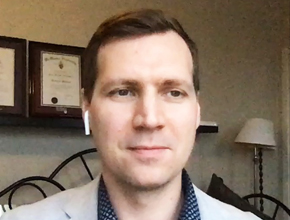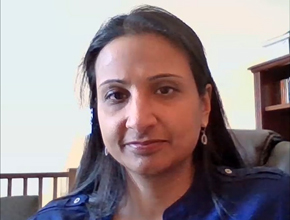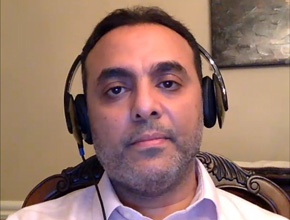Dr Nishma Singhal, associate professor in the Divisions of Infectious Diseases and General Internal Medicine at McMaster University, joins Dr Roman Jaeschke to discuss recent updates on coronavirus disease 2019 (COVID-19), including the naming conventions, epidemiology, and speculations about the future.
For the February 14 update, click here. For the February 4 update, click here.
Roman Jaeschke, MD, MSc: Good morning. Welcome to another edition of McMaster Perspective. Our guest is Doctor Nishma Singhal. We’ll try to get some update on the current coronavirus outbreak.
Could you start by reviewing the evolution of names that we apply to this virus and to this disease?
Nishma Singhal, MD: Sure. The disease—in terms of the actual infection—is still referred to as COVID-19, as we’ve talked about before [see Novel coronavirus. February 14 update]. I think there is some confusion because in some of the other languages the virus itself is being referred to as the severe acute respiratory syndrome coronavirus 2 (SARS-CoV-2), which is similar to the SARS virus in the early 2000s.
Roman Jaeschke: And the disease is called COVID…?
Nishma Singhal: COVID-19.
Roman Jaeschke: Ok, so that was the first question. The second one is about a short update on the numbers around the world and in Canada.
Nishma Singhal: The numbers in Canada have not really changed. However, around the world we have around 80,000 cases as of this morning. There’s been a little under 3000 deaths, or more specifically somewhere between 2800 to 3000; the numbers vary because it’s an evolving situation.
I think the important part is that we are starting to see some spread outside of China. Over the weekend and since last week there have been 3 other countries that have reported a significant spike in the number of cases, including Italy, Iran, and South Korea.
Roman Jaeschke: Now the difficult question. We are meeting for the fourth time. We are talking about what happened and what is happening. I wonder if, on the basis of what we know by now, we could speculate—and I will use this word very explicitly—about the future. What can we predict? It’s difficult, especially when it comes to the future.
Nishma Singhal: I agree. It’s certainly difficult to speculate, because we still have a lot to learn about this virus.
I think given the spread outside of China and in multiple countries, the concern is that other countries will continue to see outbreaks as well. There have been some cases where either contact tracing or monitoring hasn’t worked and we’ve developed many other outbreaks, so you don’t know how those are going to evolve yet. There is growing concern that we will see more cases in North America and likely in Canada, especially if there are cases out there that are unknown and are not being monitored.
I think the long-term outlook is that perhaps this will be a new virus that we are going to be dealing with in the future and that it may not be contained to a single outbreak. How this particular outbreak will evolve and whether it will settle or become an endemic virus, like the influenza virus, in the future is still unknown, but I think this is [becoming increasingly more probable].
Roman Jaeschke: The coronaviruses are a common cause of common cold. Obviously this specific one is a different type of virus, but the other coronaviruses in common cold seem to be seasonal. Can you speculate if this one could be seasonal, [linked to] cold weather as well?
Nishma Singhal: I don’t think we know for sure but in general coronaviruses don’t survive in warmer climates that well, which is why they are often seasonal. If that remains true for this one, then we could see it die down over the summer months.
Whether it recurs next fall or winter remains to be seen. But coronaviruses don’t survive on surfaces in warmer climates that well.
Roman Jaeschke: One thing that this could give us—a speculation again—is the time [we need] to develop a vaccine. Do you have any speculation on how fast vaccines could be developed at this stage of human development, so to speak?
Nishma Singhal: Certainly there are people working on a vaccine and the time can vary, depending on how difficult it is to find the target for immunization or how difficult it is for us to be able develop a protective response. But generally we’d probably be looking at at least 12 to 18 months.
Roman Jaeschke: Thank you very much. It appears that our discussions will continue. Thank you for today.
Nishma Singhal: You are welcome.
 English
English
 Español
Español
 українська
українська










